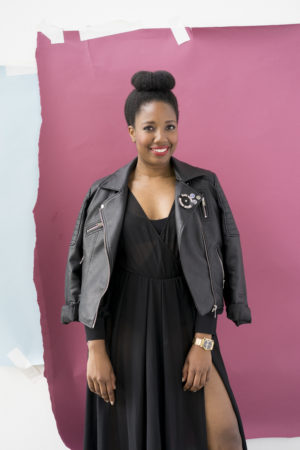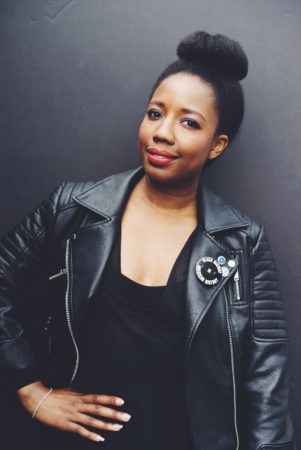This Austin leader continues to work tirelessly in her efforts to bridge the racial and economic gaps in underserved communities in Austin.
By Danielle Ransom
For Virginia Cumberbatch, helping people isn’t something she does because it’s “the right thing to do.” Her desire to help stems from a genuine passion to make the world a better place.
 “If you don’t become an influencer among your sphere of influence, you can’t expect the world to magically change,” Cumberbatch says.
“If you don’t become an influencer among your sphere of influence, you can’t expect the world to magically change,” Cumberbatch says.
Aug. 25, Cumberbatch will be awarded the Anti-Defamation League of Austin’s Social Justice Award for her tireless work in bridging the gap between disadvantaged communities in Austin. For her, the award is less about pride and more about building a platform to raise awareness for community improvement.
Growing up, Cumberbatch’s role models were her grandparents, who were regularly involved in community outreach.
“I would spend whole summers with my grandparents in Los Angeles, witnessing them work with underserved communities to make sure they were receiving the support they needed,” Cumberbatch says.
With more than 40 years of expertise in academics, her grandmother worked to ensure her students received the support they needed, while her grandfather used his position as a pastor to care for the homeless.
When not working alongside her grandparents, Cumberbatch followed in the footsteps of her father, a lawyer in Austin, as he attended board and community meetings to advocate for underserved communities.
“Watching my parents and grandparents help others was a big part of my life growing up and set the precedent for me. It’s a part of my DNA. When I came back to Austin [after college], I kind of jumped right into things, even though I was still trying to find my footing with my first job,” Cumberbatch says, reflecting.
 After attending an Urban Gala meeting, she slowly found her calling. Her first civic-engagement meeting in Austin started with revitalizing the Austin Area Urban League Young Professionals. (She stepped down as president in 2014 after running the organization for three years.)
After attending an Urban Gala meeting, she slowly found her calling. Her first civic-engagement meeting in Austin started with revitalizing the Austin Area Urban League Young Professionals. (She stepped down as president in 2014 after running the organization for three years.)
“It was a great opportunity to create something that wasn’t around when I was growing up for people my age and older, particularly African-Americans,” Cumberbatch says. “[It was great] to have a space where people feel they can contribute and see people that look like them while engaging in awesome opportunities.
“The visibility of people of color has decreased and there is power in visibility in a city. [There is power] in being able to walk downtown and see someone that looks like you.”
With her ceaseless drive and strong work ethic, it’s easy to see how Cumberbatch caught the attention of the Anti-Defamation League, one of Austin’s biggest proponents of social justice.
Recently, she co-founded Hux Storyhouse, a branding and creative collective that uses culturally relevant storytelling to help clients develop authentic branding with markets throughout the black diaspora.
“Virginia was the unanimous choice for the Social Justice Award,” says Reid Schwartz, an account supervisor at the ADL.
Founded in 1913, the Anti-Defamation League’s driving principle is the fight against bigotry in all forms to build a just and equal society.
“Virginia’s interest and commitment to social justice comes from a sincere interest in making the world a better place for everyone,” says Sherrie Frachtman, ADL board member and former chair. “She’s a gifted communicator who brings people together for the common good.”
Cumberbatch is active in using her job as the director of the University of Texas Community Engagement Center to cultivate open discussion toward bettering the Austin community, specifically in East Austin.
“Our real mission in the Community Engagement Center is to be the front porch of UT and address issues that are happening around Austin,” Cumberbatch says. “Austin is a big city, but it has a small-town feel. Historically, with the migration of the black population, there was always this dynamic of separation and segregation. Now, we are experiencing another migration that is mostly economic because of gentrification. … African-Americans have been contributing to Austin for decades on an artistic, architectural, cultural level and more.”
Cumberbatch fondly recalls a meeting with renowned civil rights leader Julian Bond during her years at graduate school, noting his influence on her.
“He was a connector between my generation and the previous era. It was so special to see someone who ushered in that first era of civil rights and be empowered by him as a student,” she says. “His passing made me realize we can’t be dependent on our parents and previous generations to continue to lead the conversation. We have to step up.”

